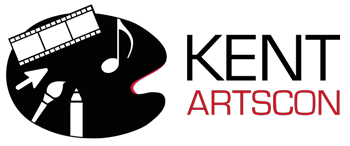CArtsCon 2019: Changing the Narrative
Narrative: a spoken or written account of a connected set of events; a story (Oxford English Dictionary)
Our lives are full of stories – we hear them, see them, make them, experience them, live them. Stories are also often told from one particular point of view i.e. the creator’s.
All art tells a story—from the earliest cave paintings to Mozart’s operas to Hitchcock’s films to JK Rowling’s books to photographs of your children. Art can be an expression of someone’s mind or feelings, or it can relate events that happen, or it can create imaginary worlds for a viewer to inhabit. Even the most abstract tells a story, and all of the stories art tells take on different meanings for different people.
We have seen how movements like #MeToo have changed Hollywood, the films it makes and the people who make them. We have seen how people can change their country through the choices they make, or by allowing others to make choices for them.
2019’s CArtsCon theme challenges you to change the narrative. Change the story. Change the storyteller. Change the protagonists. Change the medium. Does an artist make art, or does art make an artist? Can you create multiple stories for your audience? Or can the audience create art with you?
To that end also, we invite people who work with communities to come forward and share how the arts have changed their communities.
Come along and join (or add to) the debates and discussions.
Some of the topics below can serve as a guide for speakers and presenters:
- Conformism and conformity in the arts
- Cultural appropriation
- Representation of gender, race, sexual orientation, age, (dis)ability
- Using the arts to educate and transform society
- The reciprocal dialogue between the arts and reality
- Techniques employed to motivate, educate, inform, and persuade
- The power of various art forms to create awareness and thought (including theatre, film, dance, writing, visual arts, etc.)
- Ethical considerations for the arts
- Politically-correct art: an oxymoron?
- Health and well-being through the arts
- Historical cases and examples of how art changed the narrative
- The evolving lexicon of artistic idioms
- Arts education
- Future-proofing arts disciplines
- Community involvement and development
- Art sponsorship, funding, and/or curatorship
- Art as a movement
These and other sub-topics will be explored through a variety of tracks. The tracks will include: Visual Presentations; Arts Workshops; Academic Papers; Creative Writing; A Short Film Festival; Art History Classes; Art Demos; Industry Panel; and, an Art Exhibit.
